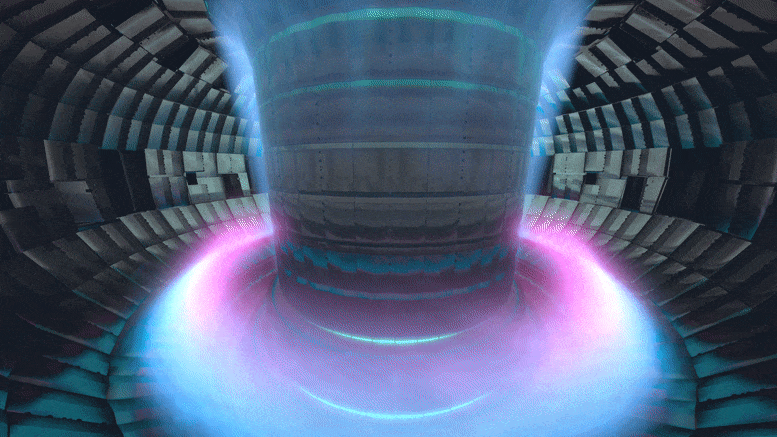Picture an airplane that can only climb to one or two altitudes after taking off. That limitation would be similar to the plight facing scientists who seek to avoid instabilities that restrict the path to clean, safe, and abundant fusion energy in doughnut-shaped tokamak facilities. Researchers at the U.S. Department of Energy’s (DOE) Princeton Plasma Physics Laboratory (PPPL) and General Atomics (GA) have now published a breakthrough explanation of this tokamak restriction and how it may be overcome.
Toroidal, or doughnut-shaped, tokamaks are prone to intense bursts of heat and particles, called edge localized modes (ELMs). These ELMs can damage the reactor walls and must be controlled to develop reliable fusion power. Fortunately, scientists have learned to tame these ELMs by applying spiraling rippled magnetic fields to the surface of the plasma that fuels fusion reactions. However, the taming of ELMs requires very specific conditions that limit the operational flexibility of tokamak reactors.
